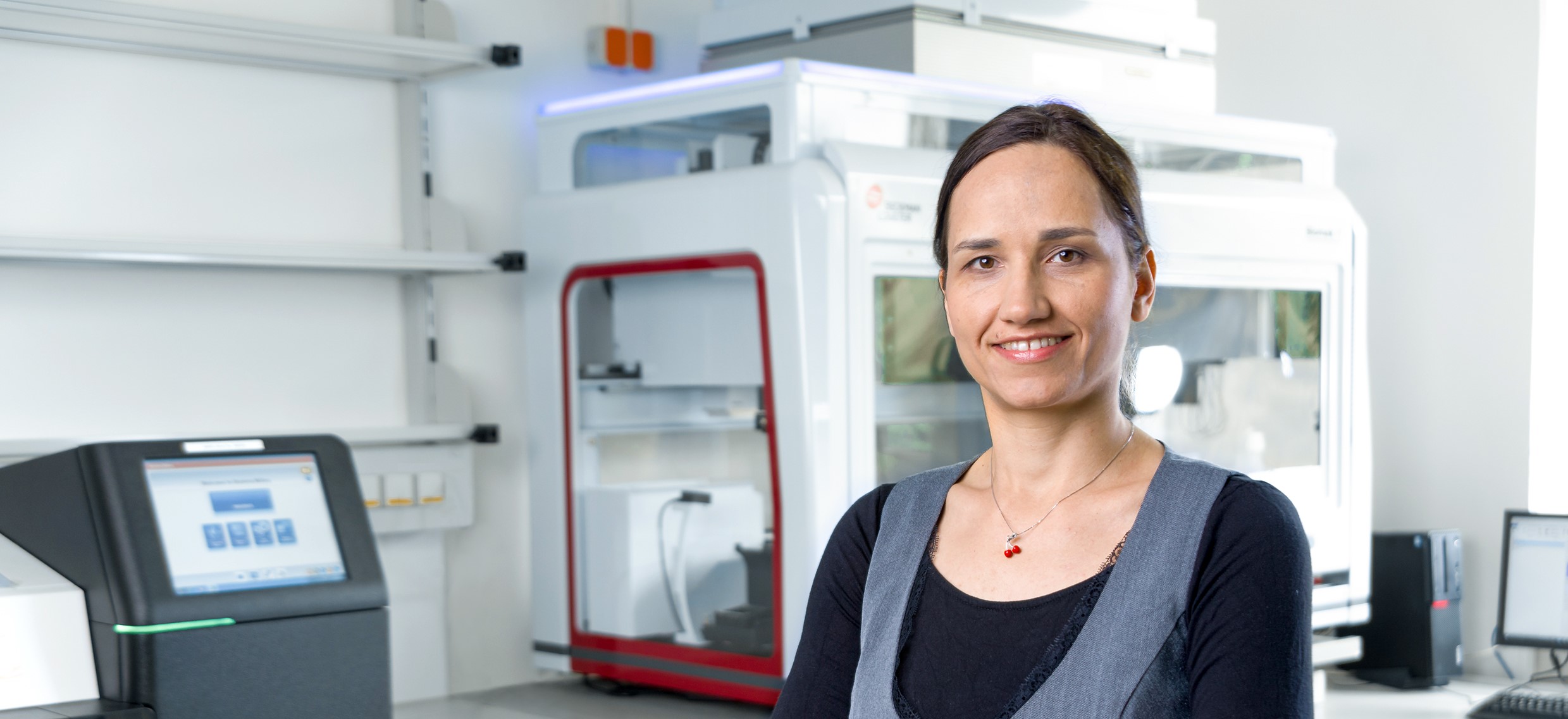
Dr. Nataša Stojanović Gužvić
Project manager in the Fraunhofer ITEM Division of Personalized Tumor Therapy in Regensburg

“Understanding the molecular basis of human disease and cancer research in particular have fascinated me since my teenage years – working on these topics is my passion!” This is how Dr. Nataša Stojanović Gužvić describes her attitude towards her job as a molecular biologist. She studied molecular biology in Belgrade (Serbia) and, supported by scholarships, graduated and completed her doctorate at the Technical University of Munich. She had originally planned to move to vibrant Berlin thereafter, but the career opportunities in unhasty Regensburg were too tempting – a postdoc position in the Fraunhofer ITEM Division of Personalized Tumor Therapy led by Prof. Christoph Klein. She had first met him at a congress during her doctorate and became inspired by his research. In 2015, she joined the Fraunhofer ITEM Working Group on Cellular and Molecular Diagnostics in Regensburg as a postdoc. Four years later, she received the Regensburg Oncology Award for her work on the microfluidic enrichment, isolation and characterization of disseminated melanoma cells from lymph node samples.
After her parental leave, the researcher got the opportunity to establish a new disease model for personalized tumor therapy, namely organoid cultures, in collaboration with the Fraunhofer ITEM working groups on Preclinical Therapy Models and on High-Throughput Drug and Target Discovery. A fantastic project, she reckons. An organoid is an organ-specific microstructure created by growing patient cells using cell culture methods. The scientists in Regensburg generate organoids from disseminated, circulating tumor cells. “These organoids actually reflect the stage of tumor disease of each patient – they harbor the information about the current tumor activity and its vulnerabilities,” explains Dr. Stojanović Gužvić. Disseminated tumor cells are genetically different from the primary tumor previously removed from the patient’s body, which is why therapy ideally must be individually adapted to the disease stage to make it successful. Organoid cultures derived from patient samples can help identify the drugs that are effective against the relapse. This requires many work steps as well as high-throughput technology, so that using automated processing seemed to be a logical choice to improve these complex workflows.
Her passion for cancer research was thus joined by enthusiasm for automating laboratory processes, a technology that actually belongs to the engineering sciences. When it came to implementing automated sample processing, however, the Regensburg researchers were confronted with problems they were unable to solve with their expertise in the life sciences. At this point, the scientist benefited from the interdisciplinarity within the Fraunhofer world: She discussed her ideas, for example, with colleagues at the engineering-focused Fraunhofer Institute for Manufacturing Engineering and Automation IPA and together they found creative solutions. "I am dreaming of an automated laboratory that in the future will make it possible to process a large number of samples in a short time, to quickly obtain standardized results and thus ultimately to directly help the patient in the clinic!" summarizes the project manager. She meanwhile enjoys living in Regensburg with her husband and two children, loves yoga as a way to balance her life and whenever possible spends time on the Adriatic coast in her native Montenegro.
 Fraunhofer Institute for Toxicology and Experimental Medicine
Fraunhofer Institute for Toxicology and Experimental Medicine